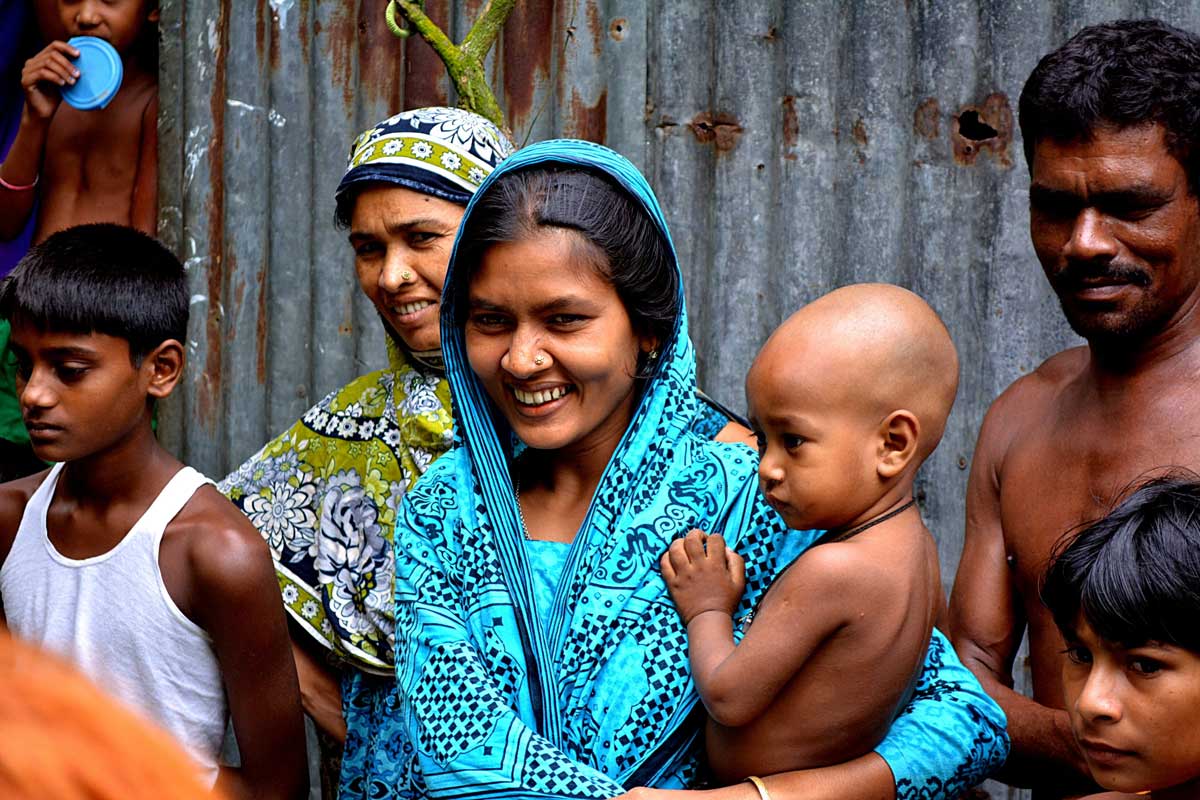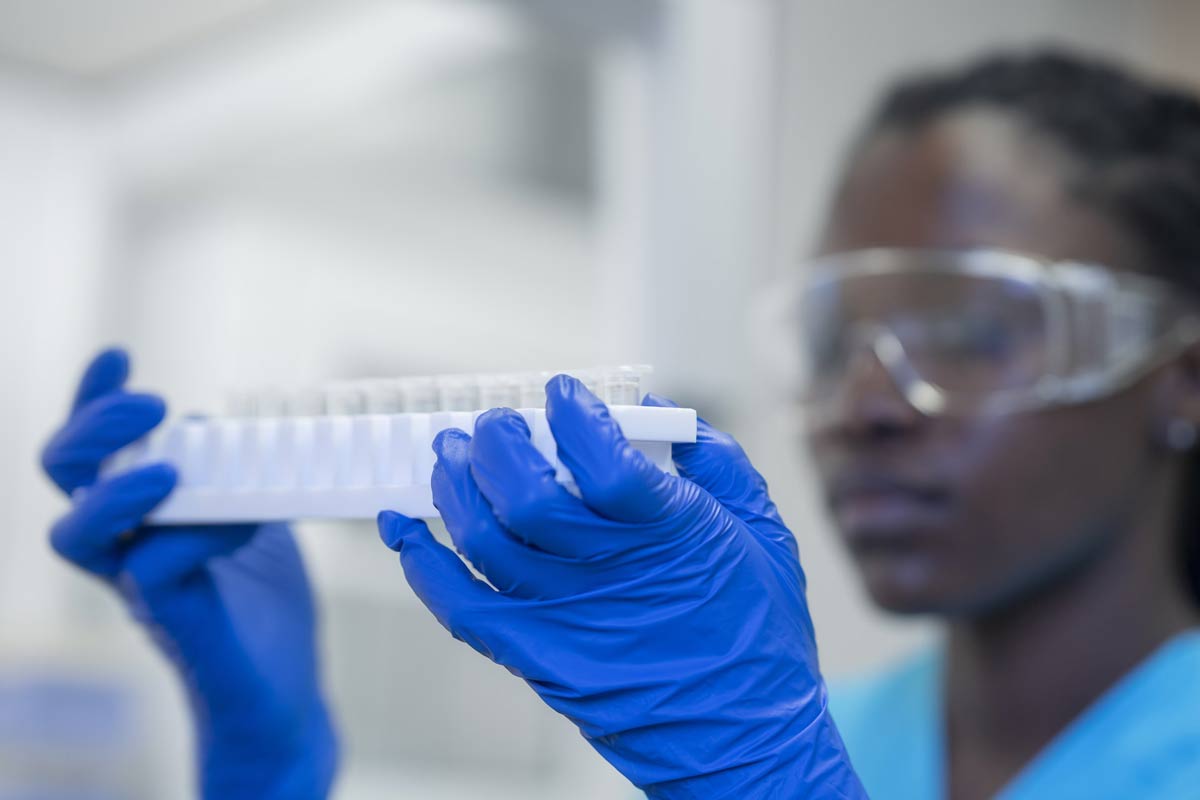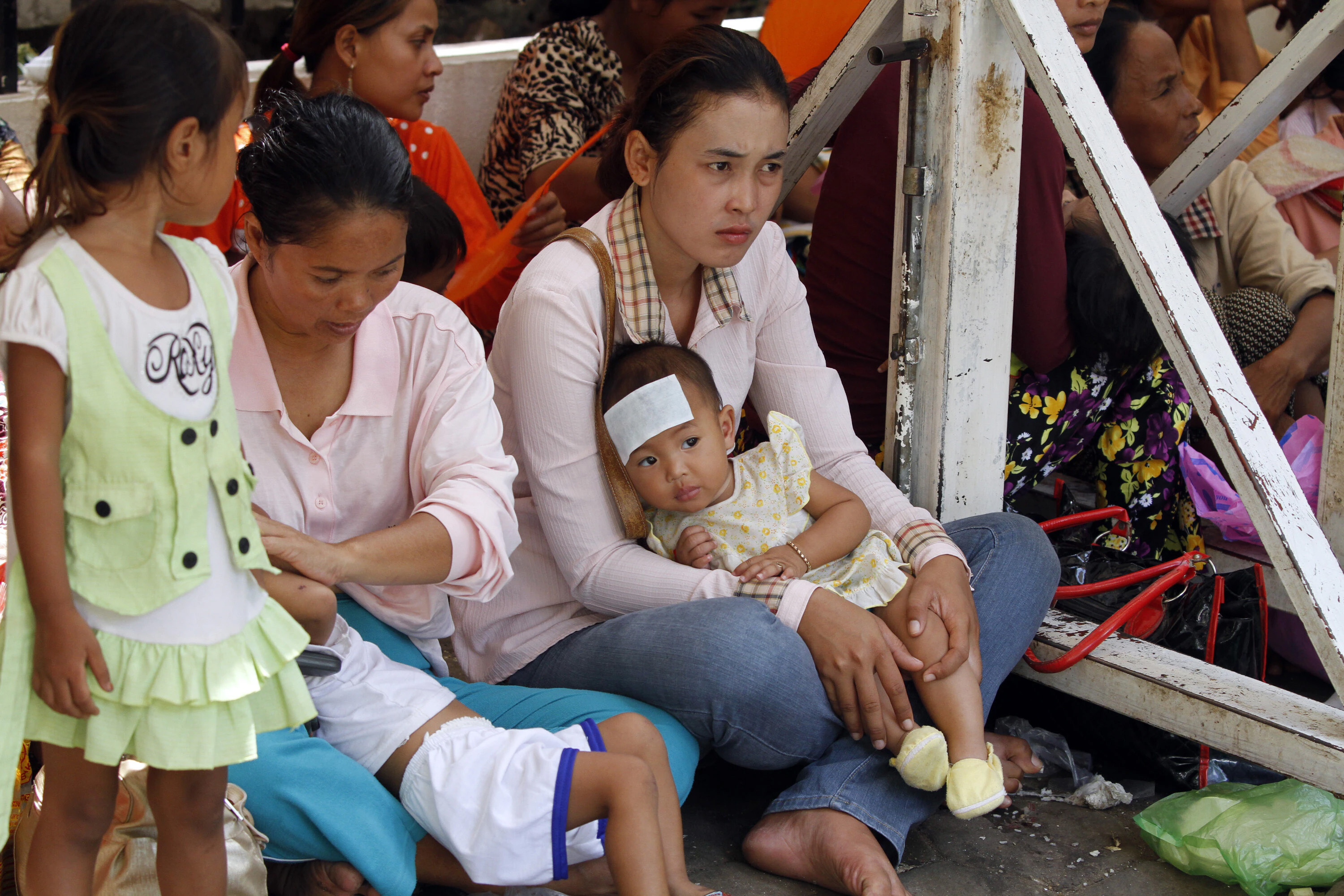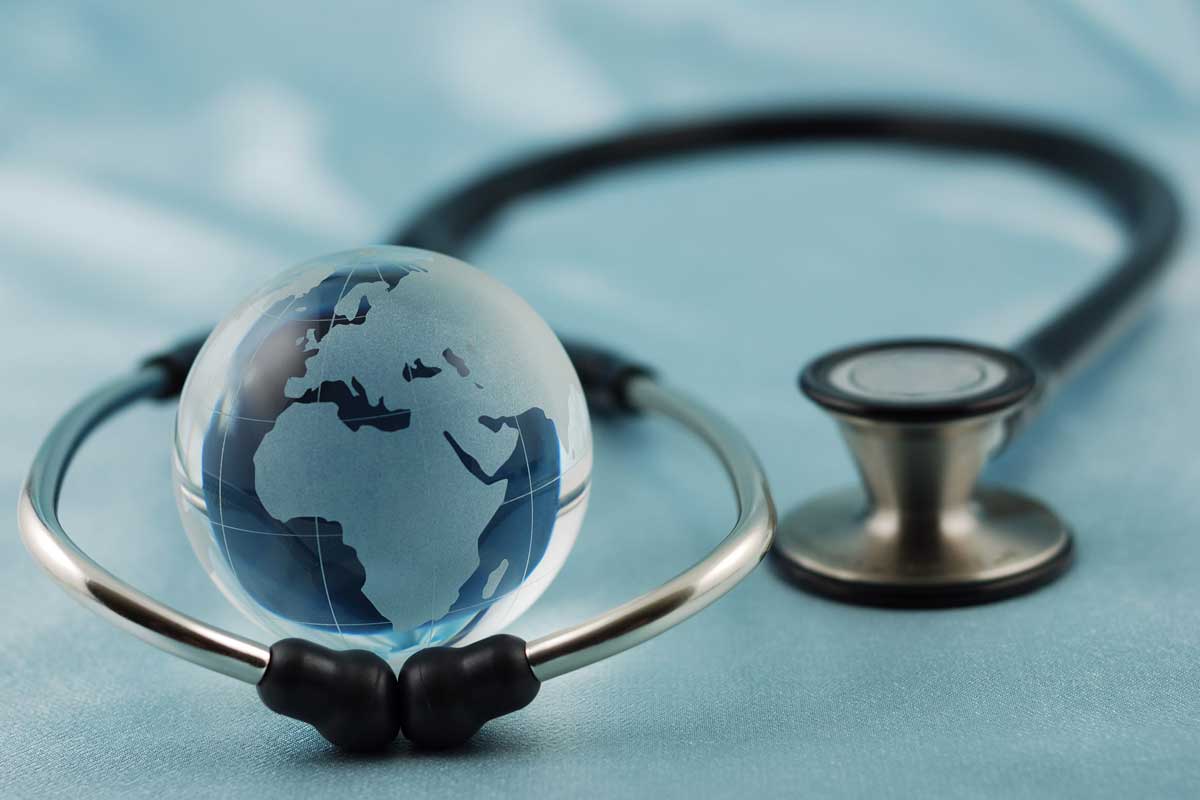Davos 2023: What you need to know about the future of global health
Global health and healthcare is on the agenda at the Forum's Annual Meeting. Here’s what you need to know about Davos sessions on health and the Forum's impact.
- 17 January 2023
- 6 min read
- by World Economic Forum

On the same day the World Economic Forum's Annual Meeting began in Davos on 21 January, 2020, the World Health Organization published its first situation report on Novel Coronavirus (2019-nCov).
It said there were 282 confirmed cases of pneumonia of "unknown etiology" (cause) in four countries: China, Thailand, Japan and the Republic of Korea. There were also six deaths in the city where it started, Wuhan.
To date, COVID-19, as we now know it, has gone on to kill more than 6.7 million people and there have been more than 660 million confirmed cases globally. But there have also been more than 13 billion vaccines administered to date, according to the WHO.
Three years after that first WHO situation report, world leaders are coming together in Davos for the first time the Annual Meeting has been held in person in January since the pandemic began (in 2022, it was held in May).
Health and healthcare will be on the agenda - and, with COVID-19 still not yet a health issue of the past, delegates will be taking precautions.

What to watch on healthy futures during the Annual Meeting 2023 in Davos
Economics of Women’s Health with Kevin Ali (@OrganonLLC), @bishen_shyam (@wef), @HelenClarkNZ, @smritiirani (@MinistryWCD), @Atayeshe (@UNFPA), @MSuzman (@gatesfoundation). #wef23 https://t.co/m5bm6JBJpn
— World Economic Forum (@wef) January 17, 2023
Tuesday, 17 January: 13:00–13:45CET
Investing in women's health will potentially contribute to economic and social development, not only for individual women but also for their families, communities, and societies. Why do gendered health and well-being gaps continue to persist and what policies and actions are needed to improve the situation?
Ending Tuberculosis: How Do We Get There?
Tuesday, 17 January: 16:15-17:00 CET
What mechanisms can accelerate development and deployment of safe and effective TB vaccines?
The Wellcome Trust's Jeremy Farrar warned against becoming overly focused on vaccines, "Vaccines will be a game changer but only when they are integrated into everything else." The Global Fund's, Peter Sands added, "the prospect of a vaccine, better diagnostics, we have already got better treatments for drug resistant TB which will enable us to do the job more efficiently." He also highlighted that TB is "a disease that has been around for a very long time that we have proven that we can eliminate as a public health threat in all of the richest countries in the world and yet, we allow millions of people to be sick and die continuing."
WHO's Dr Tedros Adhanom Ghebreyesus picked up on this, emphasizing that rich nations need to change this pattern of behaviour. "It is only when the rich countries are affected that it then becomes a serious issue."
Wednesday, 18 January: 09:00–09:45CET
How can the world shift its COVID-19 strategy from pandemic response to endemic management and close the persistent gaps in access to diagnostics, therapeutics and health services?
Putting Health at the Heart of Climate Action
Wednesday, 18 January: 13:15–14:00CET
Climate change has a direct impact on physical and mental health, with more than half of known infectious diseases worsened by rising temperatures and 20 million individuals displaced each year as a result of weather-related events. What steps are needed to place global health at the heart of climate action and protect individuals globally?
Health Systems: Building through Disruption
Wednesday, 18 January: 16:15–17:00CET
The impact of the pandemic, compounded by geopolitical conflicts and socio-economic turbulence, is disrupting healthcare globally and hitting the vulnerable the hardest. The Director-General of the World Health Organization, Dr Tedros Adhanom Ghebreyesus, will join a panel to discuss what is needed to unlock equitable access for all while building crisis-resistant health systems.
Thursday, 19 January: 17:30–18:15CET
With COVID-19 bringing to light pre-existing vulnerabilities in health systems and the importance of having quality data available for decision-making, what is the right balance between incentives and regulations to achieve sustainable access to data for better healthcare?
Global health in numbers
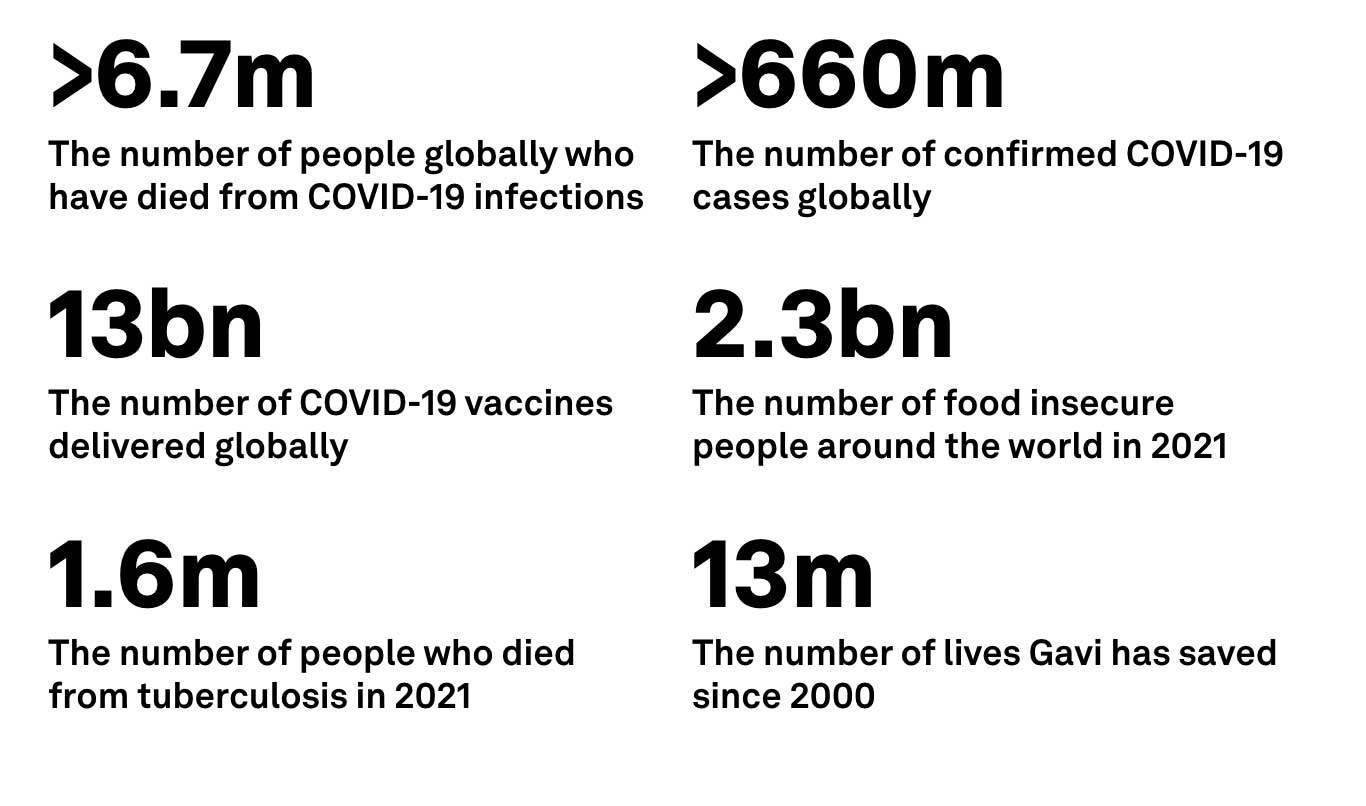
Reports, initiatives and announcements on healthy futures during Davos 2023
Using lessons from the pandemic response, the Global Health and Healthcare Strategic Outlook: Shaping the Future of Health and Healthcare sets out a vision for 2035 based on four strategic pillars of equitable access and outcomes, healthcare systems transformation, technology and innovation, and environmental sustainability, with equity as the foundational goal.
To address global health inequities, the Forum's Global Health Equity Network and is partners are launching the Zero Health Gaps Pledge: the world's first global, multi-sector health equity pledge. The Zero Health Gaps Pledge outlines the need for, and commitment to, a multi-disciplinary approach and concerted action across sectors and organizations globally to advance health equity.
Watch the press conference live: Towards a World with Zero Health Gaps
Too many people from marginalized communities and underrepresented groups distrust healthcare. The trust gap can impair the lives of millions of people, leading to significant inequalities and ultimately worsening global health outcomes. A global coalition between public, private and social sectors is needed to build a bridge of trust between healthcare and people who can feel discriminated against. That's the thinking behind Sanofi's new global initiative A Million Conversations.
Watch the press conference live: Achieving health equity by tackling the trust gap
A snapshot of global health in 2023
Throughout the extreme weather events - droughts, flooding, heatwaves and wildfires - of 2022, the impact of the climate crisis on global health and wellbeing was all too stark.
In fact, the WHO has named the climate crisis the "biggest health threat facing humanity". Air pollution, the silent killer, is already responsible for seven million deaths a year, but the WHO estimates an extra quarter of a million deaths each year between 2030 and 2050 will result from malnutrition, malaria, diarrhoea and heat stress.
In 2021, almost a third of the global population (2.3 billion people) were moderately or severely food insecure. Severe drought in parts of the world, added to the war in Ukraine (known as the 'world's bread basket'), has worsened food insecurity.
The climate crisis and nature's collapse is also linked to increased respiratory and cardiovascular disease and changes in infectious diseases patterns.
In 2021, a total of 1.6 million people died from tuberculosis, while measles cases globally spiked by 79% in the first two months of 2022. Both are preventable and a vaccine against measles has existed for 60 years.
Many of the challenges we face today are interconnected, but, as we saw with the COVID-19 pandemic and the speed with which a vaccine was created and rolled out, when we work together, we can achieve better and more equitable health outcomes.
Website
This article was originally published by the World Economic Forum on 16 January 2023.
